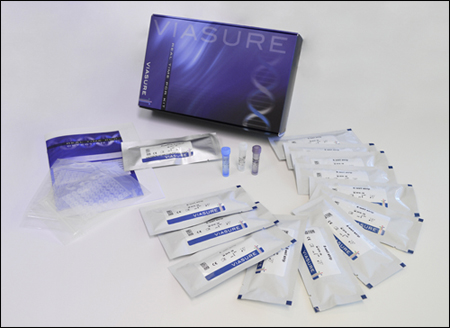
VIASURE Real Time PCR Detection Kits
Influenza A

Description
VIASURE Influenza A Real Time PCR Detection Kit is designed for specific identification and quantification of Influenza A in clinical samples from patients with signs and symptoms of respiratory infection.
This test is intended for use as an aid in the diagnosis of Influenza A in humans in combination with clinical and epidemiological risk factors.
RNA is extracted from specimens, amplified using RT‐amplification and detected using fluorescent reporter dye probes specific for Influenza A.
Specifications
Information
Influenza viruses belong to the Orthomyxoviridae family and cause the majority of viral lower respiratory tract infections. There are 3 types of influenza, A and B being the most common in humans, while influenza C is less common and produces milder disease.
Influenza A and B are a significant cause of morbidity and mortality worldwide, considering that elderly and compromised individuals are especially at risk of developing severe illness and complications such as pneumonia. After an incubation period of one to two days, the illness has an abrupt onset. People often feel some or all of these symptoms: fever or feeling feverish/chills, cough, sore throat, nasal stuffiness and discharge, myalgia, headaches, and anorexia.
The influenza viruses can be spread from person to person in two different ways: through the air (large droplets and aerosols from sneezing and coughing), and by direct or indirect contact. Wild waterfowl are believed to be the natural reservoir of influenza A viruses, which can transmit the virus to numerous other species, primarily poultry, pigs, and humans. Influenza A is an enveloped, single stranded RNA virus that containing eight segmented strands of genome RNA, which typically encodes 11 or 12 viral proteins. The viral envelope, derived from the host plasma membrane, consists of a lipid bilayer containing transmembrane proteins, like hemagglutinin (HA) and neuraminidase (NA), and matrix proteins M1 and M2. Influenza A viruses are further classified into subtypes based on the antigenicity of their “HA” and “NA” molecules.
Real‐time PCR assays have been shown to be a sensitive and specific diagnostic tool for the detection of influenza A viruses. In particular, the M1 gene is being used extensively for rapid identification of these viruses.
